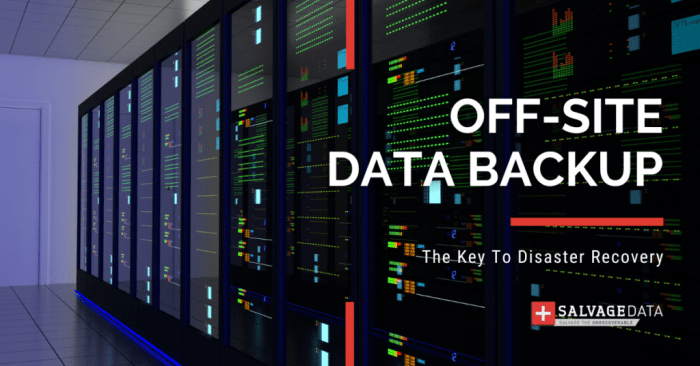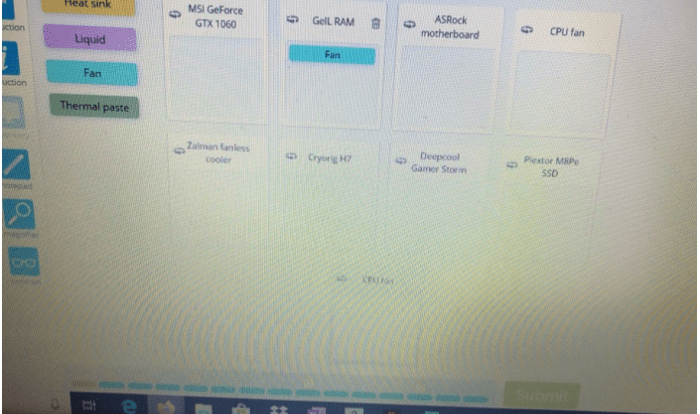Why should backup media be stored offsite – In the digital age, data has become an invaluable asset for businesses and individuals alike. Protecting this data from potential disasters is crucial, and storing backup media offsite is a key strategy for ensuring data availability and minimizing risks. This article delves into the importance of offsite backup storage, exploring its advantages, types, security considerations, and cost implications.
Offsite backup storage involves storing data backups in a location physically separate from the primary data center or office. This separation provides an additional layer of protection against disasters such as fires, floods, or earthquakes that could compromise onsite data.
1. Importance of Offsite Backup Storage

Storing backup media offsite is crucial to safeguard data from potential onsite disasters such as fires, floods, earthquakes, or malicious attacks. It ensures data availability even when the primary data center is inaccessible, minimizing downtime and data loss.
2. Types of Offsite Backup Storage

Cloud Storage
- Cloud storage provides a cost-effective and scalable solution for offsite backup.
- It offers remote access to data from anywhere with an internet connection.
Remote Data Centers, Why should backup media be stored offsite
- Remote data centers provide a secure and reliable location for offsite backup.
- They offer high levels of physical security and redundancy to protect data.
Physical Tape Vaults
- Physical tape vaults offer a traditional and cost-effective method for offsite backup.
- They provide long-term data storage and can be stored in secure locations.
3. Data Security and Compliance: Why Should Backup Media Be Stored Offsite
Data security is paramount when storing backup media offsite. Encryption, access control measures, and compliance with industry regulations are essential to protect sensitive data from unauthorized access.
4. Cost Considerations
Offsite backup storage involves costs such as setup fees, ongoing maintenance, and data retrieval charges. Evaluating the cost-benefit ratio and optimizing storage expenses is crucial.
5. Recovery Time Objectives (RTOs) and Recovery Point Objectives (RPOs)
RTOs and RPOs define the acceptable time and data loss after a disaster. Setting appropriate RTOs and RPOs ensures data recovery meets business requirements.
6. Backup Verification and Testing

Regularly verifying and testing offsite backups ensure data integrity and accessibility. Establishing a testing schedule and documenting the results is essential.
7. Legal and Regulatory Considerations

Legal and regulatory requirements may apply to the storage of backup media offsite. Ensuring compliance with relevant laws and regulations is crucial.
Answers to Common Questions
What are the advantages of storing backup media offsite?
Offsite backup storage offers several advantages, including protection against onsite disasters, improved data availability, reduced risk of data loss, and compliance with industry regulations.
What are the different types of offsite backup storage?
There are various types of offsite backup storage solutions, such as cloud storage, remote data centers, and physical tape vaults. Each option has its own benefits and limitations.
How can I ensure the security of my backup media stored offsite?
Data security is paramount when storing backup media offsite. Encryption, access control measures, and compliance with industry regulations are essential for protecting sensitive data.
